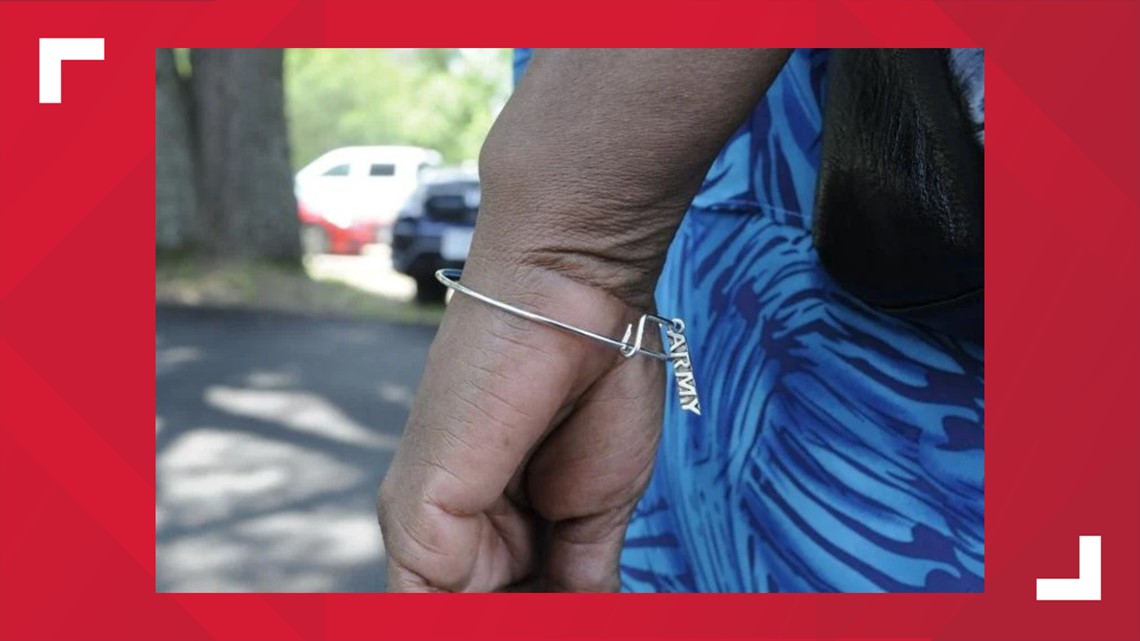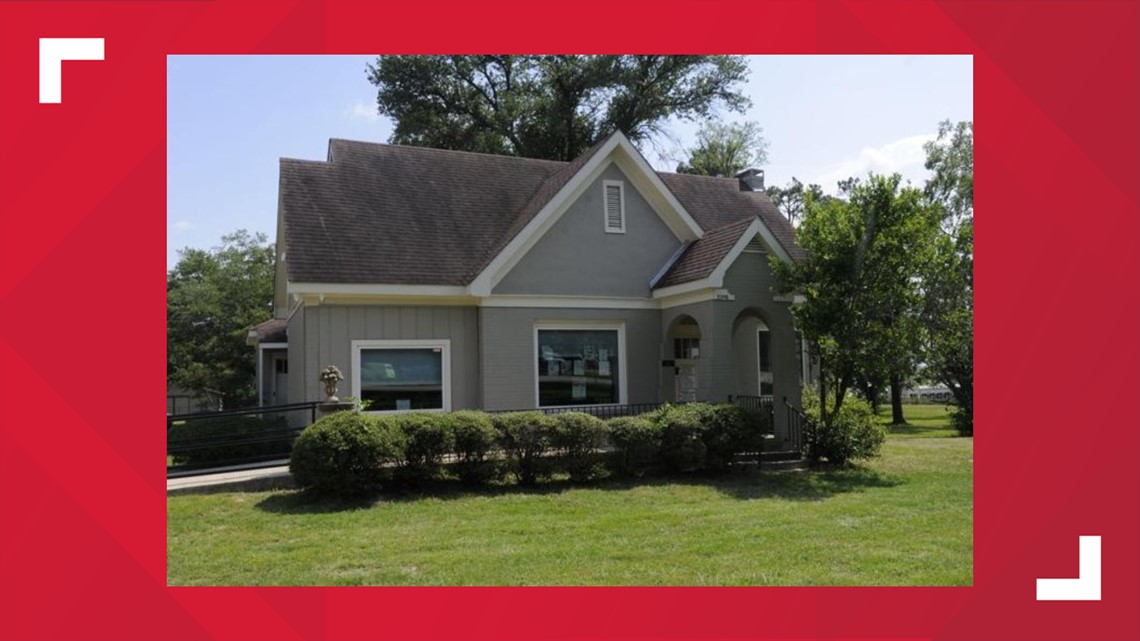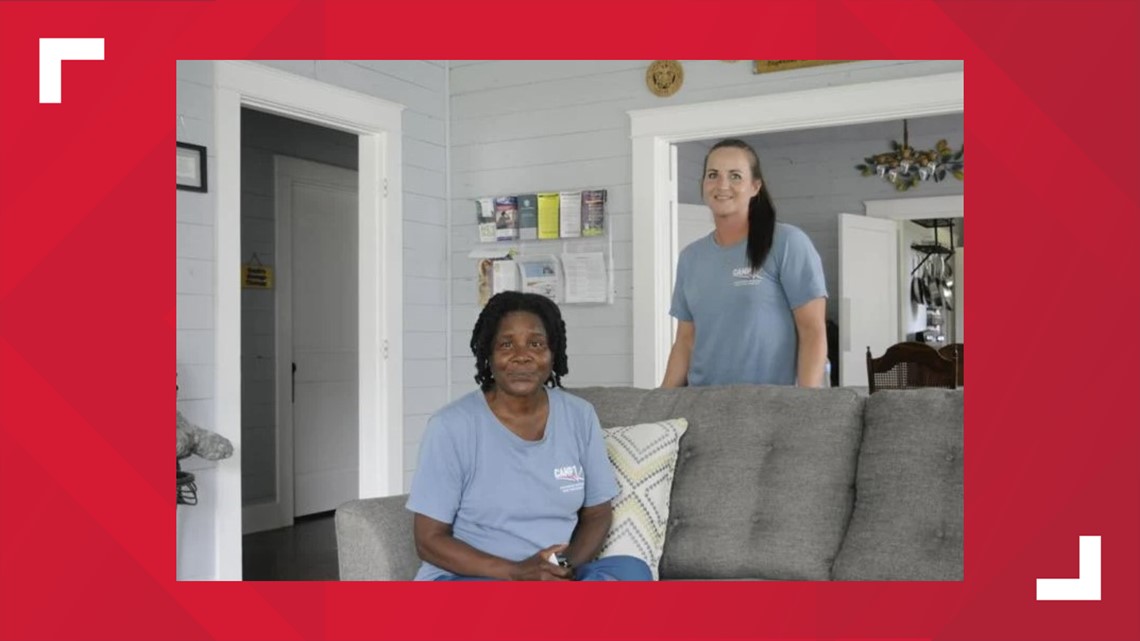TYLER, Texas — Men often wear veteran hats, distinguishing themselves from civilians walking down the street. However, women veterans are a discreet and sparse population.
"If you were walking down the street, you wouldn't know I was a veteran," retired U.S. Army Sgt. 1st Class Yvonne Munn said. "A veteran is a veteran. I don't care whether you served in wartime or peacetime; you're still a veteran. Carry that and be proud."
Women's Veterans Day, June 12, commemorates the signing of the Women's Armed Services Integration Act in 1948, which gave women the right to serve in the U.S. Armed Forces permanently.
Gov. Greg Abbott signed Women's Veterans Day into law in 2017. It celebrates women's right to serve, recognizes their accomplishments and serves as an opportunity to meet women veterans.
"It's past time where we stop to say we recognize women for their service and contributions," said Coby Dillard, UT Tyler Military and Veterans Affairs director. "We're just now catching up to recognizing that women have served right along with men and have done just as much."
Among women in America, only 1.5% are veterans, according to the U.S. Department of Labor (DOL) 2019 Gender and Veteran Demographics.
"This means that only one in every 69 women in this country is a veteran," said Nancy Glowacki, DOL Veterans' Employment and Training Service program manager, in a training video. "This is important for us all to remember – while everyone has had personal interaction with a woman, most people have not had personal interaction with a woman veteran."
Following her uncle's and three brothers' footsteps, Munn was the first female in her family to serve. She entered the Army with parental consent at 17 years old and served nearly 22 years.
The Army stationed Munn all over the world, including Fort McClellan, Alabama; Fort Gregg-Adams, formerly Fort Lee, Virginia; Fort Liberty, formerly Fort Bragg, North Carolina; Fort Huachuca, Arizona; Fort Lewis, Washington; Korea; Germany; and Saudi Arabia.


Munn was the only female in her unit to deploy to the Saudi Arabian desert in January 1991. She was the supply sergeant, ensuring supplies were in good working order and that soldiers had the supplies they needed to do their job.
"It was an interesting four months in the desert," Munn said. "It was more on the primitive side."
Being the only female, going to the bathroom was the hardest part. She said the men encircled her, faced away and safeguarded her while she took care of business. She filled her combat helmet with water in the truck's front cab for quick wash-ups.
Conditions in the desert were harsh. It was cold at night and scalding during the day with sand everywhere, so she buzz-cut her hair.
"It was a different experience," Munn said. "I learned that I can survive."


Munn now serves as chair of the women's center, Our Place at CampV, a building dedicated to women in the armed forces, including reserve, guard, military spouses, dependents and veterans.
"If I see a female, I'm gonna stop and talk to you because you could be a veteran or the spouse of a veteran," Munn said. "I just want to identify them."
Munn gave women veterans at CampV a silver bangle with a military branch charm this year and will provide more bangles as she discovers more women veterans.
"That way, if you're walking down the street and wearing your bracelet all the time, somebody sees your bracelet and says, "Oh, you're in the military," she said.
The stigma associated with being a veteran and then as a woman may make women veterans harder to reach in communities, Dillard said. Women veterans don't usually seek help.
"That motherly instinct, I'm going to handle it. I'm going to take care of it," Dillard said. "The military teaches all of us we're going to take care of it regardless, so you compound the instinct already there, and it's magnified."
Many women still face gender discrimination and sexual harassment in the service but aren't keen on discussing it. Dillard said his department at UT Tyler and CampV have similar experiences reaching women veterans.


"We all still struggle with that, trying to get our sisters to come in and sit down with us and let us help you," Dillard said. "Sometimes we rely on other women veterans to have those conversations that we as men sometimes just can't have."
Many women who experience harassment in the military keep to themselves, Munn said. People cannot move forward if they're holding on to something that has happened to them.
Munn said female veterans and military spouses are with like-minded people at Our Place. Our Place connects women to services and resources to help them transition from military to civilian life and the range of services available to them during military service or veteran life.
Munn added that Gold Star Families for Peace, America Gold Star Mothers and Gold Star Wives of America and children are all welcome at Our Place.
"You need to let it go and talk about it," she said. "It's all about helping each other."
Women veterans, military spouses and Gold Star Families are invited to the FireSide Chat at the Women's Center from 5:30 to 6:30 p.m. every second Tuesday of the month, where the group talks and is provided updates and information on the U.S. Department of Veterans Affairs benefits and similar topics.
Contact Our Place at 903-566-1010 ext. 1114 or email at womenctr@campvtyler.com.

